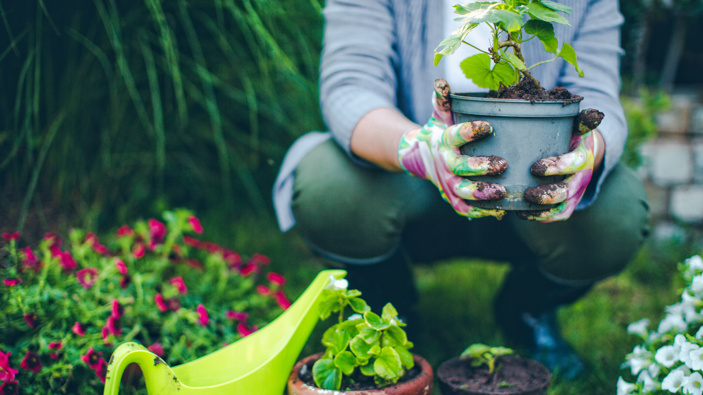Just looking at how nature operates, we can find quite a few ‘do-s’ and ‘don’ts' when it comes to designing a garden or operating such a space.
Here are my top tips – some of which are also reflecting my personal loves and hates:
Go with the Flow - curved lines in landscapes! In nature there are very few straight lines (if any!). The old French and Dutch Gardens (17th century etc) look spectacular but remember, they were designed to show off the wealth of the landowners, especially those that were driving the economy…economists have never been able to work with nature.
Minimise the amount of hard surfaces on the ground. Water that falls from the sky habitually has a tendency to soak into the soil where it benefits invertebrates, fungi, plants, trees and shrubs, as well as algae, bacteria and soil critters. The moment you create hard surfaces, you’ll create flooding down the line somewhere...which is why I think we need to de-seal our roads in suburbs where we can.
Create wildflower areas. I have never understood the use of lawns. Monocultural deserts of green nothingness and with very little biodiversity. Petrol-driven lawnmowers are noisy and time consuming. In a wild-flower meadow all you may need to do, from time-to-time, is cut some ‘pathways’ in between the meadow full of flowers. Besides, how cool would it be for the All Blacks to play their matches in a wildflower field?
Practice pest control with organic technology. Life-friendly chemistry is a heck of a lot healthier for the applicator, the garden and the planet. Allow predators, parasites and pathogens to do the balancing job for you! You’ll never eradicate a problem critter or fungus – nature often operates on a control system, whereby balances are restored naturally.
Be nice to your birds, insects and fungi. Not every bug you find is automatically a pest. In fact, most of them are very useful indeed. Biodiversity is not just a few species that linger in your garden – it’s a massive number of organisms that form a complex ecosystem. That system grows your plants, it cleans the air and the water, nurtures the soil and feeds you through the vegetables you grow.
Look after your soil. It’s what grows everything! Use compost to add organic matter - don’t use PEAT! That stuff will make clay a lot more friable and better draining. It also allows sand soils to hold water more efficiently. That black organic matter also gives nutrients for the plants a place to ‘sit on’, so they can be released slowly.
Avoid plastic if you can…pots, tags, plant ties and tray. Plastic has slowly become the material that will never go away from our natural areas. As it erodes it becomes smaller and smaller and smaller and those particles finally become molecular in size – invisible, but still present.
There are stories of molecular plastic in the oceans, eaten by fish – and eaten by us. The molecular plastic often has positive and negative ions that link up with viruses and other disease-like organisms – imagine: plastics being the carriers of our pathogens!
LISTEN ABOVE
Take your Radio, Podcasts and Music with you










